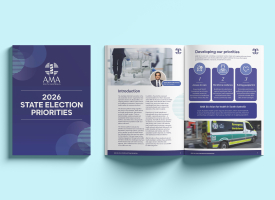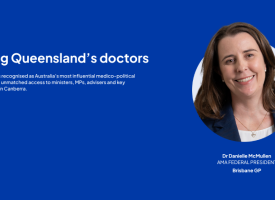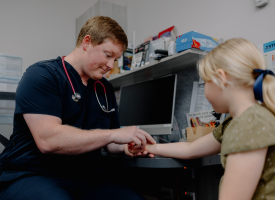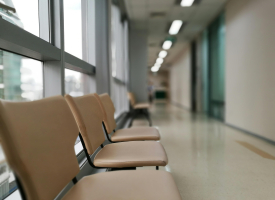COVID telehealth item and pandemic funding extension welcome but more to do to address health crisis
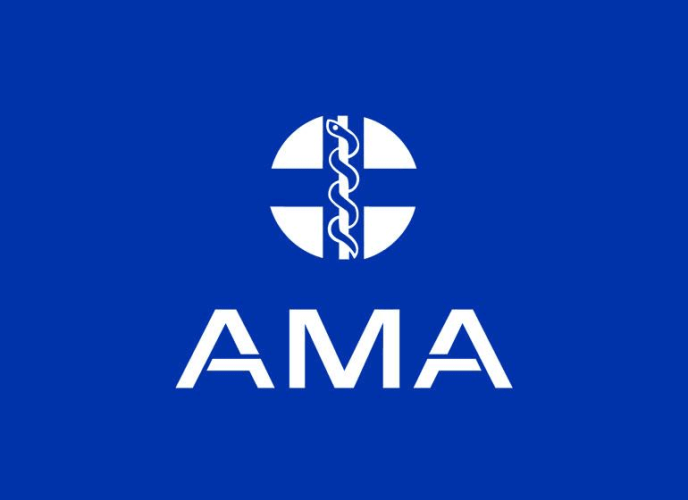
DR OMAR KHORSHID: The announcement of the change in decision from our new Albanese government on pandemic payments and improved access to antiviral consultations by Telehealth are positive steps and are signs that the government is actually listening to community concerns. And a very deep concern of the medical profession of those mixed messages that people seem to be receiving from our different levels of government. The pandemic remains an extraordinary challenge for Australia, for our health system, for our economy, and it's important that we have measures in place that help us control the spread of the virus and limit its impact on people's health. However, the changes on telehealth do not go far enough. The reality is that many Australians who don't have access to video calls do need to access their doctor, whether they be a specialist or a general practitioner by telehealth. And as of 1st of July around 70 item numbers were cut from Medicare that allowed access to telephone telehealth and none of those have been reinstated.
The decision to reinstate an item for discussions around antivirals is an important step. It will help Australians access the critically important antiviral medication quickly, so they can get to their pharmacy, get that medication and get it into them as fast as possible, following a positive test result. And that's a good step. And it's acknowledgement by government that their previous decision was incorrect, but we need to go further and make sure that the pandemic settings for telehealth remain and similarly, throughout other decisions of government. We are still facing an extraordinary challenge here with this pandemic and the supports that have been put in place by the previous government and by this government in order to manage the pandemic are still needed. Until we're on the other side of this crisis.
QUESTION: Do you think that the payments is fair that they've been renewed until September, or should it be an indefinite sort of situation?
DR OMAR KHORSHID: We need these supports to be in place as long as they're necessary to support Australians doing the right thing. When it comes to the pandemic payments, they supported the most vulnerable of our workers from being able to be able to do the right thing, to keep off work for the full week after a positive diagnosis for COVID and to help protect their coworkers and other people in that workplace from contracting the disease. Now, if you don't have support in place to do that, how can you expect people to do the right thing? So it's a really positive step that it's been extended. Whether it'll still be necessary at the end of September, it's a bridge that will have to cross at the time. It will be after winter, but of course, we've seen many waves of COVID and our expectation is there'll be further waves to come.
QUESTION: Do you think the payments should have been reinstated earlier?
DR OMAR KHORSHID: The payments should never have been removed. And I think this government is learning some new lessons as it gets its feet under the desk, and how important it is to stay in touch with the community, with the experts and others in the community that are giving them advice and not just to listen to the bean counters and bureaucrats that do see any expenditure on health as a waste. We know as doctors on the ground and as workers in a healthcare system, that investment in healthcare, investment in pandemic management is a positive investment for the economy, for Australia's health. It'll be a good investment in time, and that's really one of the key lessons of the pandemic that we must not forget.
QUESTION: What about masks? Is the recommendation ... is that good enough or do we need mandates and set rules for public places and [inaudible]
DR OMAR KHORSHID: We need to keep following what is happening with the pandemic and to continue to respond as is necessary. So the government's shown a strong indication that it'll do that today with the support of the states. And if we get to a situation where mask mandates are required, in order to slow the spread of the community and make sure there's a hospital bed available for any of us who might need it tomorrow. If that's the decision that's necessary, then that's the decision that Premier should make and should be supported by the Commonwealth government in doing that.
QUESTION: Our COVID hospitalisations in WA have risen a hundred in the past seven days. Are you concerned by that?
DR OMAR KHORSHID: The number of patients in hospital with COVID is a marker for the amount of COVID in our community. It's not a suggestion that this virus is particularly worse. It's showing that there's a lot of cases in the community, and probably many more than the positive test results that are being reported to the government. It's a sign to the McGowan government. They need to keep on top of this. They need to look at whether further restrictions are going to be necessary, and exactly what those might be. And I would hope that they are making those plans now. But with the deep hope and expectation that perhaps they won't be necessary if Western Australians go out and do the right thing - if they go and get their third dose, if they haven't had it yet. They go and get their fourth dose. Now that is available for anyone over the age of 30. I'll be going to get my fourth dose shortly after I've finished here, because I know that's something that will give me extra protection over the next few weeks. As we see these huge numbers of Omicron BA.4 and BA.5 surging through our state and the rest of the country. If we do the right thing, we can avoid the need for mandates for lockdowns, but it is up to us.
QUESTION: The PM won't extend the free RAT program. What are your thoughts on that?
DR OMAR KHORSHID: The PM has pointed out that free RATs are actually available through state governments, and I guess, it doesn't really matter who is paying for these tests as long as they are freely available and affordable, if not completely free for every single Australian who needs them. We are asking people to do the right thing and test themselves repeatedly when they've been exposed to COVID. We're not asking them to do that for their own health. We're asking it to do that for the health of others. That's why governments need to support access to these tests. They should be free in almost all circumstances and pleasingly here in WA and in many other states, they are actually free. And the federal government is contributing to the cost of those through its agreement with the state governments.
QUESTION: Omar, do you think COVID isolation periods should be reduced from seven to five days?
DR OMAR KHORSHID: At the moment, the advice of the experts is that people are potentially still transmitting their disease for up to seven days after diagnosis and that's why that seven day period is there. There is a question out there as to whether we need to change our approach to the pandemic in order to bring more workers back into the workforce and really have people off work only when they're sick, and if they're asymptomatic, perhaps they can go to work. But that's a dangerous question to be asking, because what it will do is really push the virus further through the community at a faster pace.
And whilst healthy vaccinated Australians may well be able to cope with catching COVID again and potentially again, the reality is many vulnerable Australians cannot. It'll mean that we see higher death rates, higher hospitalisation rates, and of course, we'll see a health system that will buckle under the pressure. It's already under extraordinary pressure. You do not want to get sick at the moment, anywhere in Australia, because of the pressure on our health system. And we need to be taking this virus seriously, if only to protect that health system so that it's there for us when we need it.
QUESTION: So can't see that seven days changing anytime soon?
DR OMAR KHORSHID: As far as I know, that seven days isn't likely to change, but what we need to be doing is making sure that all our public policy lines up. And if we get to a point where Australia decides to follow the path of other countries and say, let's just forget about this virus, let's accept that it will become a normal part of our lives, that it will kill a number of Australians, that it'll leave thousands of Australians in hospital continuously. If that decision is made, then of course, other flow on decisions will go through such as removing isolation periods. And we will have the benefit of getting our workers back into the workforce quicker.
But if we're going to keep saying let's protect ourselves, let's slow the spread of the virus, then we need the COVID supports in place so that Australians can do the right thing. And they're not put in a situation of having to balance up whether to do the right thing, but not put food on the table, or in fact, go to work, pretend they haven't got COVID, pretend it's a cold or a flu, and actually put their coworkers at risk.
QUESTION: The state government is looking at easing some of those COVID protocols in the hospitals. What do you make of that?
DR OMAR KHORSHID: A lot of us who work in hospitals see the impact of the COVID protocols on our efficiency. It does slow us down and it makes hospitals more full and more difficult to run, than they usually are. But they're there for a really good reason. They're there to protect the most vulnerable people from contracting COVID while they're in hospital. And the last thing you want to do, if you go to hospital for an elective surgical procedure, or if you're there for your chemotherapy, for your cancer, the last thing you want to do is contract a very dangerous virus while you're in the hospital. And that of course is what we saw early in the pandemic before we had proper masks in place, before we had proper protocols in place, and those protocols are highly effective. Very few people are contracting COVID, workers or patients in hospitals at the moment. So whilst it is superficially an attractive option, there's a lot of issues with removing those protocols. And I think whilst you've got case numbers surging both in the community and in hospitals, it would be pretty dangerous step to take.
